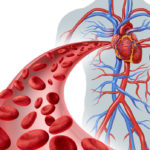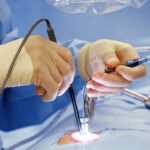Surgery for Heart Valve Disorders
Valvular Heart Disease is still very common in our country. Most of these are due to Rheumatic Heart Disease. Normally, these start with recurrent throat infections and joint pains in childhood/teenage. These young adults develop valve problems. Suppose you’re looking for the best cardiologist in Delhi to treat these conditions. In that case, Dr. S.K. Sinha is highly experienced in diagnosing and treating valvular heart disease.
There are four valves in the human heart, and one or two valves may be affected. The valves that are commonly affected are the mitral and aortic valves. Sometimes, the tricuspid valve is also involved. Valve problems may be either narrowing (stenosis), leaking (regurgitation), or a combination of both. Dr. S.K. Sinha, regarded as the best cardiologist in Delhi, offers specialized treatment for these issues.
Valves, once damaged, require either repair or replacement. If not tackled in time, it may cause the heart to enlarge and increase pressure in the lungs. This can lead to permanent changes in the lungs.
Heart Valve Surgery can be done either by a conventional route or by a minimally invasive route. Dr S.K. Sinha, who is the Director of CTVS Cardiac Science at Max Healthcare, Saket, New Delhi, specializes in performing valve surgeries via the minimally invasive route. Instead of a midline sternal-splitting incision, a small incision beneath the right chest is made. With the help of specialized instruments, the valve is repaired or replaced.
Minimally invasive cardiothoracic surgery has its advantages, such as smaller incisions, faster recovery, less pain, and minimal blood loss. Since the scar is beneath the breast in females, it is widely accepted for its cosmetic value.
TYPES OF VALVES:
Patients frequently ask, “What type of valve will be good for me?”
Prosthetic (Artificial) heart valves are broadly classified into two types:
- Mechanical
- Bioprosthetic
Mechanical Valve:
Mechanical valves are made of Pyrolytic carbon (one of the strongest materials known to humanity). It is used in younger patients and will last a lifetime. However, patients must take Warfarin or Acitrom lifelong. Below 50 years of age, this is the valve of choice, with the exception being female patients who want to undergo pregnancy.
Bioprosthetic Valve:
Bioprosthetic or biological valves are made up of tissue (Pericardium) and are best suited for patients above 50. Warfarin/Acitrom is not needed. This valve is supposed to last 20-25 years, so it is not recommended for patients below 50 years of age. You can consult the best cardiologist in Delhi, Dr. S.K. Sinha, for expert advice and the best treatment options.
Care after a Valve Replacement
It is important that patients take care of themselves after a valve replacement. The most common problems to be prevented are:
- Infection: The most dreaded complication. Infection occurring in the valve is dangerous. Any fever is a sign of infection. Toothache is also a concern, as bacteria circulate in the blood, so oral hygiene is paramount. Dr. S.K. Sinha recommends brushing your teeth in the morning and evening, hot saline gargles, and Listerine/Betadine mouthwash before going to bed. The slightest toothache should be treated with antibiotics. Urinary tract infections, skin infections like recurrent boils, and abscesses should be prevented. If they occur, early antibiotic therapy is a must.
- Embolism/Hemorrhage: Blood being too thick or too thin can be harmful. After valve replacement, an INR between 2.0 and 3.5 is recommended. It is important to maintain close contact with Dr Sinha’s team in this range. Suppose you’re looking for the best cardiologist in Delhi for post-surgery care. In that case, Dr. S.K. Sinha provides expert advice and continuous monitoring.
- Pregnancy: If pregnancy occurs after valve replacement, patients should be in close contact with doctors.
Note: (Persisting Fever, Burning In Urine, Or Any Problem Like Jaundice Or Bleeding Tendency Should Be Reported To Dr. Sinha.)
Why Choose Dr. S.K. Sinha, the Best Cardiologist in Delhi?
Choosing the best cardiologist in Delhi for heart valve issues ensures that you receive top-notch care. Dr. S.K. Sinha specializes in diagnosing and treating complex valvular heart diseases with a minimally invasive approach, providing you with the best outcomes and a faster recovery. With years of experience and a commitment to patient care, Dr. Sinha’s expertise makes him a trusted choice for heart health.
Frequently Asked Questions
Q1. What is minimally invasive valvular heart surgery?
Ans: This advanced procedure involves repairing or replacing heart valves through a small incision beneath the right breast, avoiding the need to split the breastbone. It offers benefits like reduced pain, quicker recovery, and minimal scarring. You can consult the best cardiologist in Delhi, Dr. S.K. Sinha, for expert treatment.
Q2. Who is a candidate for this surgery?
Ans: Ideal candidates are individuals with damaged heart valves due to conditions like rheumatic heart disease. Dr. S.K. Sinha evaluates each case to determine the suitability of minimally invasive surgery. As the best cardiologist in Delhi, Dr. Sinha offers specialized care for every patient.
Q3. What types of heart valves can be treated?
Ans: The procedure can address issues with the mitral, aortic, and tricuspid valves, whether they’re stenotic (narrowed) or regurgitant (leaky). Dr. Sinha specializes in these treatments using minimally invasive techniques.
Q4. What are the benefits of this approach?
Ans: Patients experience smaller incisions, less postoperative pain, reduced risk of infection, and faster recovery times compared to traditional open-heart surgery. This approach is particularly advantageous for cosmetic reasons, as the incision is discreet.
Q5. How can I consult Dr. S.K. Sinha?
Ans: Dr. S.K. Sinha is currently the Senior Director at Max Super Specialty Hospital, Saket, New Delhi. To schedule an appointment, contact us +91-9811321668 or email sksinha_batrahospital@yahoo.co.in.



